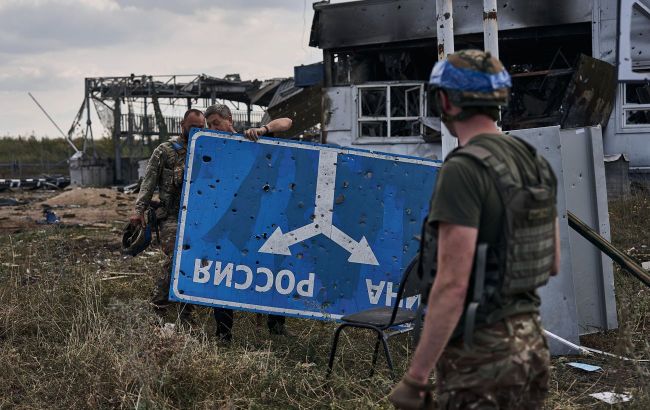Locals don't understand why Russia attacks them: Kursk region situation
 Armed Forces of Ukraine on what is happening in the Kursk region (Getty Images)
Armed Forces of Ukraine on what is happening in the Kursk region (Getty Images)
Ukrainian forces are providing residents of the territories under their control in Russia's Kursk region with essential supplies, while Russian troops continue to shell their own territory, according to Vadym Mysnyk, a spokesperson for the Siversk operational-tactical group.
"We are trying to provide the population in the Kursk region, which is under the control of Ukraine’s defense forces, with everything they need. All of this falls on the shoulders of the military because we adhere to all the requirements of international humanitarian law and ensure the local population is supplied with essential items," he said.
According to Mysnyk, Ukrainian troops are delivering water, food, and medicine to the residents of the Kursk region. Ukrainian forces are also working to restore access to water and electricity, particularly through the use of generators.
At the same time, the Russian army continues to shell its own territory heavily. Russian forces are targeting populated areas where no Ukrainian military presence exists. As Mysnyk noted, the Russian population does not understand why they are being shelled by their own forces.
"The local population doesn’t understand why they are being hit, as there are no soldiers even nearby. But the locals are suffering—they are forced to hide in basements for several hours, and sometimes they spend half the day there," Mysnyk added.
Kursk operation
The Ukrainian military operation in the Kursk region has been ongoing for almost two months. On August 6, the Ukrainian Armed Forces launched offensive actions in Russia's border areas.
A military commandant's office was established in the Kursk region, and Ukraine now controls over 100 settlements in the region.
Recently, Russian forces attempted an offensive in the Kursk region, but, as Western media have reported, the effort failed.

